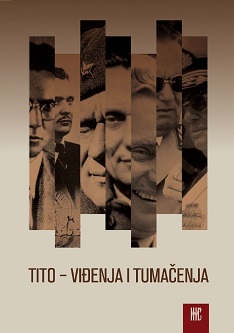Pogledi Josipa Broza na neke probleme jugoslovenskog društva šezdesetih godina 20. veka
Josip Broz's Views on Some Problems of the Yugoslav Society in 1960s
Author(s): Slobodan Selinić
Subject(s): Civil Society, Governance, Political history, Politics and society, Post-War period (1950 - 1989), Sociology of Politics
Published by: Institut za noviju istoriju Srbije
Keywords: Yugoslavia; Josip Broz; Union of the Communists of Yugoslavia; economy; politics;
Summary/Abstract: During 1960s the development of the Yugoslav society was also marked by some problems, such as economic crisis, undcidedness and disunity of the Party top brass as to the direction of further development of the state and fall of morals of the leading people in the state and the Party. Josip Broz devoted great attention to economic problems, believing the lack of solutions for them would lead to ethnic and political dissatisfaction and the loss of esteem for the country in the world. He consequently warned of the disbalance in foreign trade and criticized import without control, excessive investment and buliding of several factories of the same kind, stressing that overinvesting was the main source of economic difficulties. Instead of new investments and loans he demanded modernization, integration of companies and specialization of production, taking into account the needs of the domestic and the world markets etc. However, equally consequently the economic problems were not solved. In relation to the country's constitution and political disunity of the top brass in the state Broz showed much less concistency. Although he kept insisting on unity and concord and demanded that the Central Committee of the Union of the Communists of Yugoslavia should tackle the problems, his demand to let bygones be bygones and to leave alon the responsibility for the problems in the country, led to sham and artificial concord and unity, while the state was sapped by conflicts of the governments of the constitutent republics and by processes of disintegration. He himself traveled the way from criticizing local economic interests of the republics and struggle for a unified Yugoslav market in early 1960s, through symetrical critique of centralist forces and the tendency of the republics to be closed for outside influences at the Party congress in 1964, to plumping for decentralization late in 1965. He showed the weakest determination and will in fighting corruption, enriching and privileges of his closest collaborators, although he was acquainted with the fact that some people in his closest entourage abused their posts to line their pockets, build weekend houses and villas and to use privileges and break the law.
Book: Tito - Viđenja i tumačenja
- Page Range: 329-346
- Page Count: 18
- Publication Year: 2011
- Language: Serbian
- Content File-PDF

